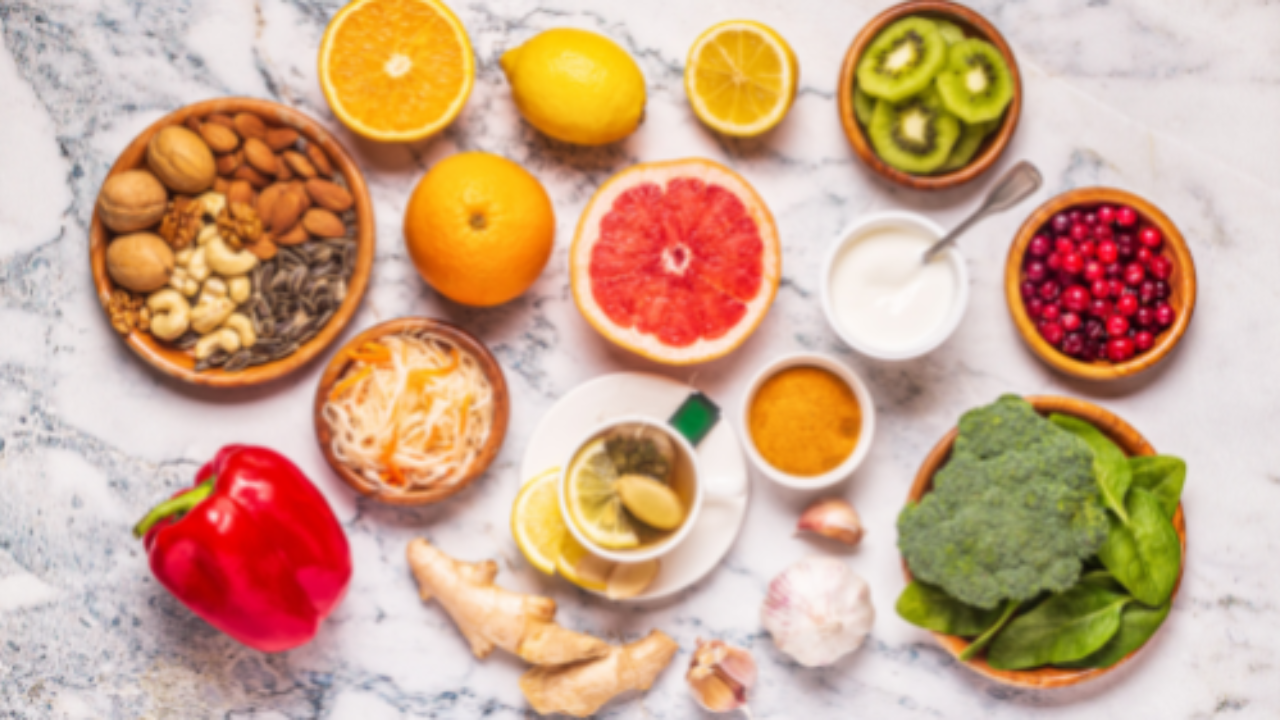
Immune boosting nutrients
Feb 06, 2023Although the anxiety most of us experienced because of the pandemic has eased a great deal, the winter season and its numerous cold and flu strains still surround us. Therefore, it is imperative to strengthen our immune function as much as possible.
The first and most important thing we can do at home is to remember the power on our plate!
Our body’s natural defense systems, which include the immune system, are largely influenced by our diet. There are several nutrients that play a key role in maintaining a strong immune system. Each of these is described below, along with its food sources.
Beta-Carotene: This phytochemical belongs to a group of colour pigments called carotenoids. It is an antioxidant, helping to neutralize free radicals. Additionally, it has been shown to increase immune cells, including natural killer (NK) cells.
Food sources: Yams, sweet potatoes, carrots, green leafy vegetables (kale, spinach), apricots (fresh and dried), red and yellow bell peppers, butternut squash, cantaloupe, Swiss chard
Vitamin C: Also called ascorbic acid. Vitamin C enhances immune function through numerous mechanisms. It supports the adaptive and innate immune system, increases natural killer (NK) cell activity (these cells target cancer cells), and acts as an antioxidant to protect immune cells by destroying free radicals.
Food sources: red and green bell peppers, kiwifruit, lemons, limes, oranges, strawberries, broccoli, mangoes, strawberries. spinach, Brussels sprouts, cabbage, hibiscus (as tea), rosehips (as tea), paprika (ground, dried)
Vitamin E: A fat-soluble antioxidant that is known to regulate immune function and protect immune cells by destroying free radicals.
Food sources: Avocado, sunflower seeds and oil, wheat germ, almonds, hazelnuts, peanuts, spinach, broccoli
Vitamin D: Boosts immune cells' production of microbe-fighting proteins and regulating the activity of immune cells.
Food sources: Fortified cereals, fortified plant-based milks, fortified orange juice, salmon, tuna, some mushrooms
Zinc: A mineral that boosts white blood cell activity, regulates immune function, and enhances DNA repair.
Food sources: Cashews, walnuts, pumpkin seeds, sesame seeds, chia seeds, flaxseed, beans, chickpeas, lentils, tofu, wholegrain bread, quinoa, spinach
Folate: A B vitamin that is essential for the production of new immune cells.
Food sources: Spinach, asparagus, broccoli, Brussels sprouts, green peas, avocado, lentils, black & kidney beans
Selenium: A mineral that acts like an antioxidant and supports immune function in several ways. It is required by the guardian of DNA- the p53 gene protein. Adequate intake normalizes the expression of BRAC gene mutations, restoring DNA repair and preventing cancer.
Food sources: Brazil nuts (one is all you need daily to reach your selenium intake!), flax seeds, chia seeds, oats, halibut, sardines, brown rice, tofu, mushrooms
I know that it's not always easy to get every single nutrient that you need for optimal immune functioning. Certain nutrients are more challenging to get from food than others, such as vitamin D3, zinc, and selenium, which can be a good reason to take a supplement.
I used to supplement with vitamin D3, zinc, and selenium separately. Today, as an 'insurance policy', I take Complement Essential- a supplement that has been specifically designed for plant-based eaters! An 'all in one’ multivitamin/mineral that includes 8 main nutrients that are commonly missing when eating a plant-based diet (or any diet, for that matter!).
Check it out here and use the discount code BALANCE to get an extra 10% off:
Complement Essential: Complement Essential - The Best Vegan Multivitamin for Plant-Based Eaters (lovecomplement.com)
Wishing you the strongest immune system possible!

